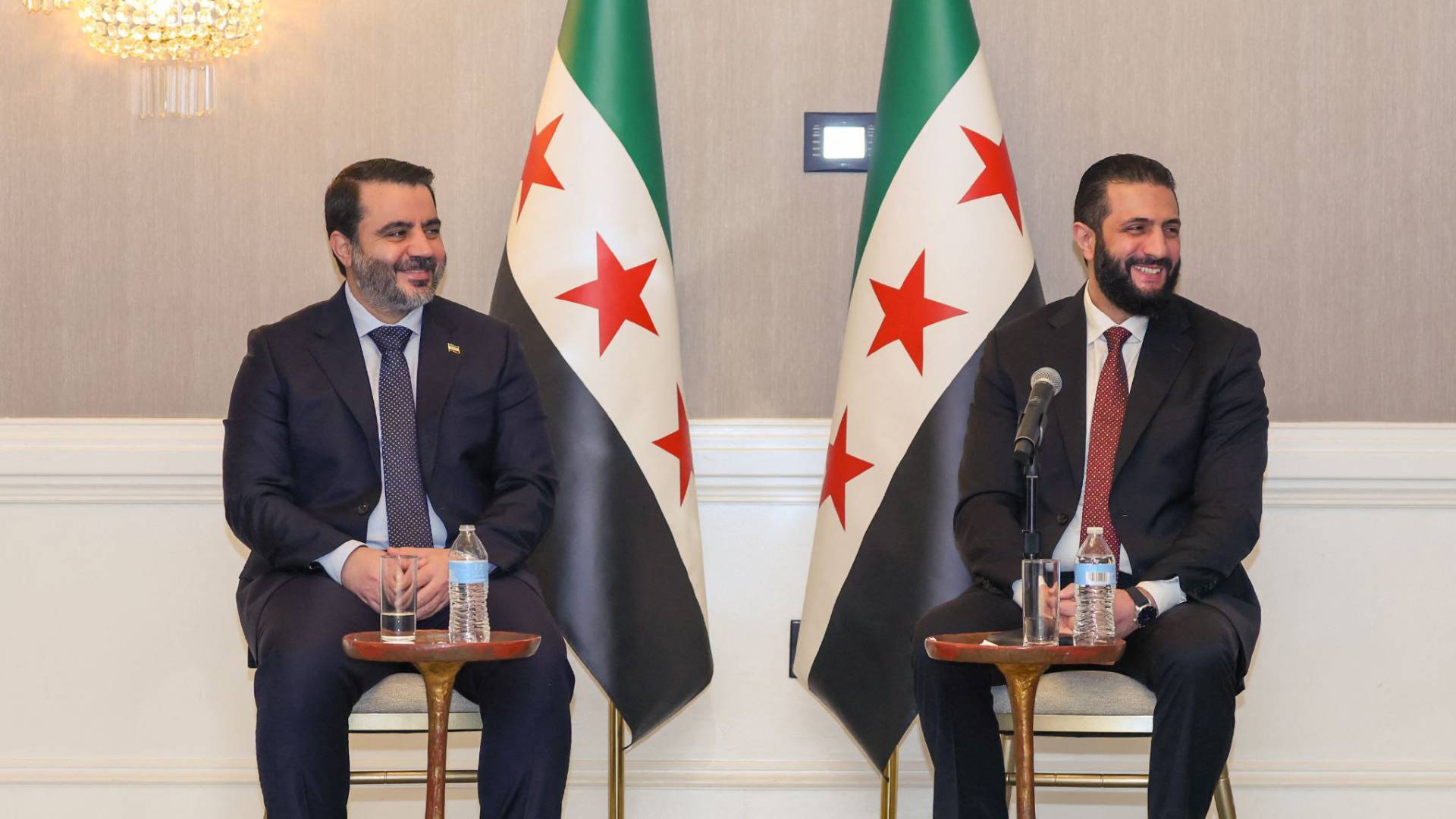Ahmed al-Sharaa with FM Asaad al-Shaibani with representatives of Syrian-American organizations in Washington DC.
Syrian president due at White House for landmark talks
Note: AI technology was used to generate this article’s audio.
- Syrian President Ahmad al-Sharaa visits the White House after being removed from the US terrorism blacklist.
- The visit marks a major step in al-Sharaa's transformation from a militant leader to a global statesman.
Syrian President Ahmad al-Sharaa will hold unprecedented talks with US President Donald Trump at the White House on Monday, days after Washington removed him from its terrorism blacklist.
Al-Sharaa, who along with other factions led a military operation that toppled Bashar al-Assad on Dec. 8, is the first Syrian president to visit the White House since the country’s independence in 1946.
Just a year ago, al-Sharaa, then known as Abu Mohammad al-Jolani, was the leader of Hayat Tahrir al-Sham (HTS).
Washington delisted HTS from its roster of terrorist organizations in July.
Since taking power, the new Syrian leadership has sought to present a more moderate image to both ordinary Syrians and foreign powers.
Diplomatic Engagements and Potential Alliance
The transitional president first met with Trump in Saudi Arabia during a regional tour the US president conducted in May.
Upon arriving in Washington, al-Sharaa met with International Monetary Fund Managing Director Kristalina Georgieva to discuss the potential for aid to Syria following years of war, as well as with representatives from Syrian organizations.
US Special Envoy for Syria Tom Barrack announced earlier this month that al-Sharaa may sign an agreement on Monday to join the U.S.-led Global Coalition against Daesh.
The coalition militarily defeated Daesh in Syria in 2019 in cooperation with the Kurdish-led Syrian Democratic Forces (SDF), who are currently negotiating integration with the Syrian Army.
A diplomatic source in Syria also informed Agence France-Presse (AFP) that the United States intends to establish a military base near Damascus simultaneously "to coordinate humanitarian aid and monitor developments between Syria and Israel."
“Progress” Acknowledged
The State Department’s decision on Friday to remove al-Sharaa from the blacklist was anticipated.
US State Department spokesperson Tommy Pigott said the al-Sharaa government cooperated with the United States in locating any missing Americans and in disposing of any remaining chemical weapons in Syria.
On Saturday, the Syrian Interior Ministry announced it had conducted 61 raids and arrested 71 individuals in a "preemptive campaign to neutralize the threat posed by the Islamic State group," according to the official SANA news agency.
It stated the raids targeted locations housing Daesh sleeper cells, including in Aleppo, Idlib, Hama, Homs, Deir al-Zour, Raqqa, and Damascus.
Seeking Reconstruction Funding
Al-Sharaa’s Washington visit follows his trip to the United Nations headquarters in New York in September, where he became the first Syrian president in decades to address the UN General Assembly.
Last week, Washington led a Security Council vote to lift UN sanctions imposed on Syria.
Syria, emerging from a devastating 13-year conflict, is seeking to secure funding for reconstruction, which the World Bank has estimated will cost more than $216 billion.




